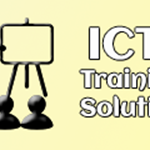Bachelor of Science General (B.Sc. Gen)
Bachelor of Science General programme lead to a variety of career opportunities including scientists working in: industries, metrological agencies, scientific laboratories, academic institutions and one can be self-employed. A student taking Bachelor of Science General degree programme can study a combination of TWO SUBJECTS, one major and one minor, from among the following that are being offered in collaboration with other departments in the faculty: Physics, Chemistry and Mathematics Or, a student can choose ONE major subject from any of the mentioned subjects, and ONE minor subject from any other Department in the Faculty (e.g. ICT, Biology, etc.), or from another relevant Faculty (e.g. Economics, Geography, etc.). You should also note that there is Single Mathematics Programme. For the Single Mathematics Programme, Mathematics is studied as a single subject along with another subject such as Chemistry, Physics, etc. Details of programme structure, showing courses codes, course names and their respective units are given under Programme Structure section. It is important to note that all courses that appear as core courses are mandatory and not optional; hence students are required to take all core courses in this programme.
Programme Summary
Programme Informations
In addition to satisfying the minimum requirements of the degree programme at OUT, candidates must have passed:
Physics or Physical Sciences at A- Level or
Chemistry at A-Level
MINOR IN PHYSICS
Course Code | Course Title | Units | Credits | Status |
LEVEL 1 | ||||
OPH 151 | Introductory University Physics | 3 | 30 | Core |
OPH 152 | Electromagnetism I & II | 2 | 20 | Core |
OPH 251 | Mathematical Physics | 2 | 20 | Elective |
OPH 350A | Physics Practicals | * | * | Core |
LEVEL II | ||||
OPH 252 | Optics | 2 | 20 | Core |
OPH 208 | Thermal Physics II | 1 | 10 | Elective |
OPH 351 | Physics of the Atom | 2 | 20 | Core |
OPH 350B | Physics Practicals | * | * | Core |
LEVEL III | ||||
OPH 352 | Quantum Theory of Solids | 2 | 20 | Elective |
OPH 411 | Applied Earth Physics | 3 | 30 | Elective |
OPH 441 | Analog Electronics | 2 | 20 | Core |
OPH 442 | Digital Electronics | 2 | 20 | Elective |
OPH 443 | Microelectronics | 2 | 20 | Elective |
OPH 350C | Physics Practicals | * | * | Core |
OPH 305 | Physics Special Project | 1 | 10 | Core |
*OPH 350A, B, C accumulated to 10 credits (1 unit) after completion
MAJOR IN CHEMISTRY
Course Code | Course Title | Units | Credits | Status |
LEVEL 1 | ||||
OFC 017 | Communication Skills | 1 | 10 | Core |
OCP 100 | Introduction to Microcomputer Studies | 1 | 10 | Core |
OCH 151 | General and Physical Chemistry | 2 | 20 | Core |
OCH 152 | Organic Chemistry | 2 | 20 | Core |
OCH 104 | Systematic Inorganic Chemistry | 1 | 10 | Core |
OCH 105 | Chemical Thermodynamics | 1 | 10 | Core |
OCH 350A | Chemistry Practicals | * | * | Core |
LEVEL II | ||||
OCH 251 | Organic Spectroscopy | 2 | 20 | Elective |
OCH 252 | Organic Reaction Mechanism | 2 | 20 | Core |
OCH 253 | Advanced Inorganic Chemistry | 3 | 30 | Core |
OCH 206 | Chemical Bonding | 1 | 10 | Core |
OCH 254 | Analytical Chemistry | 2 | 20 | Core |
OCH 255 | Natural Products & Carbohydrates Chemistry | 2 | 20 | Elective |
OCH 350B | Chemistry Practicals | * | * | Core |
LEVEL III | ||||
OCH 351 | Chemical Kinetics & Electrochemistry | 2 | 20 | Core |
OCH 303 | Industrial Organic Chemistry | 1 | 10 | Elective |
OCH 309 | Theoretical Chemistry | 1 | 10 | Elective |
OCH 351 | Chemical Kinetics & Electrochemistry | 2 | 20 | Core |
OCH 350C | Chemistry Practicals | * | * | Core |
OCH 350 | Chemistry Practicals | 1 | 10 | Elective |
OCH 307 | Chemistry Special Project | 1 | 10 | Core |
*OCH 350A, B, C accumulated to OCH 350 which is a 10 credits (1 unit) course after completion.
MINOR IN CHEMISTRY
Course Code | Course Title | Units | Credits | Status |
LEVEL 1 | ||||
OCH 151 | General and Physical Chemistry | 2 | 20 | Core |
OCH 152 | Organic Chemistry | 2 | 20 | Core |
OCH 104 | Systematic Inorganic Chemistry | 1 | 10 | Core |
OCH 105 | Chemical Thermodynamics | 1 | 10 | Core |
OCH 350A | Chemistry Practicals | * | * | Core |
LEVEL II | ||||
OCH 251 | Organic Spectroscopy | 2 | 20 | Elective |
OCH 252 | Organic Reaction Mechanism | 2 | 20 | Elective |
OCH 253 | Advanced Inorganic Chemistry | 3 | 30 | Elective |
OCH 206 | Chemical Bonding | 1 | 10 | Core |
OCH 254 | Analytical Chemistry | 2 | 20 | Core |
OCH 255 | Natural Products & Carbohydrates chemistry | 2 | 20 | Elective |
OCH 350B | Chemistry Practicals | * | * | Core |
LEVEL III | ||||
OCH 351 | Chemical Kinetics & Electrochemistry | 2 | 20 | Core |
OCH 303 | Industrial Organic Chemistry | 1 | 10 | Elective |
OCH 309 | Theoretical Chemistry | 1 | 10 | Elective |
OCH 350C | Chemistry Practicals | * | * | Core |
OCH 350 | Chemistry Practicals | 1 | 10 | Core |
*OCH 350A, B, C accumulated to OCH 350 which is a 10 credits (1 unit) course after completion.
FEES STRUCTURE
General Fees
Description | Locals (Tsh) | EAC/SADC (USD ) | NON-SADC/EAC (USD) |
Registration fee | 30,000 | 30 | 30 |
ID processing | 20,000 | 20 | 20 |
Student Organization fee (paid annually) | 20,000 | 20 | 20 |
Quality assurance fee (paid annually) | 20,000 | 20 | 40 |
Examination fees paid per paper (Test & Exam) | 10,000 | 20 | 40 |
Tuition Fees per Unit
Description | Locals (Tsh) | EAC/SADC (USD ) | NON-SADC/EAC (USD) |
Theoretical course by blended mode | 60,000 | 40 | 80 |
Science Laboratory | 150,000 | 100 | 240 |
Chemistry Special Project | 100,000 | 70 | 140 |
Name: Mwinuka Pasvolo
Email: mwinuka.pasvolo@out.ac.tz
Phone: +255 692 275 199
On successful completion of Bachelor of Science General programme, a student should be able to:
Apply the acquired knowledge in a variety of career opportunities including working in industries, metrological agencies, scientific laboratories and academic institutions.
Explain and interpret correctly all key experimental observations they come across while doing practical/field works, hence becoming true scientists who qualify to either be employed or self-employ in any relevant scientific institution.
Carry out scientific research.
For each theoretical course, candidates will be evaluated by using the following criteria:
- Timed Test carrying: 30%
- Final Examination carrying: 70%
Total: 100%
For each practical oriented course, each course will be marked out 100%.






